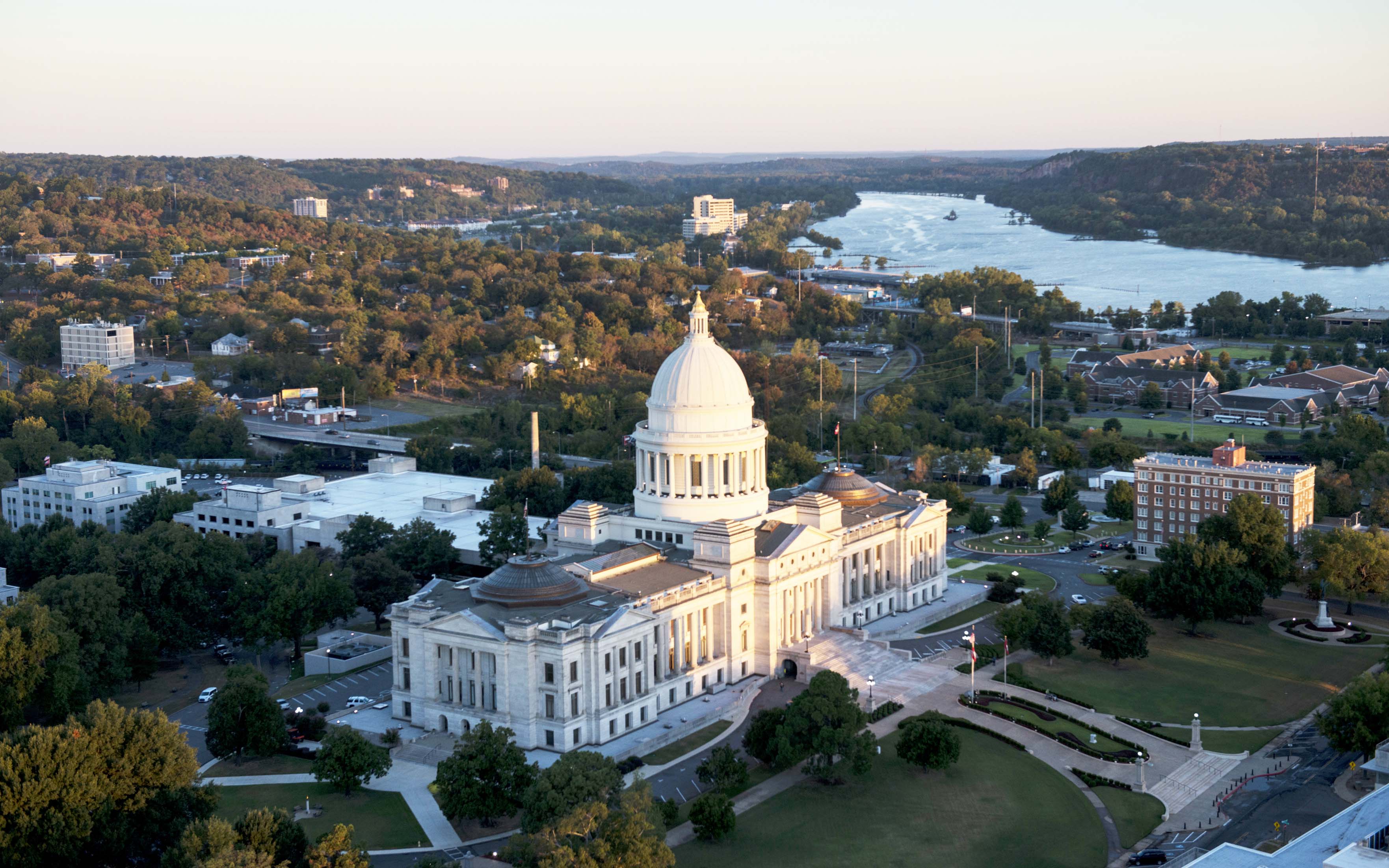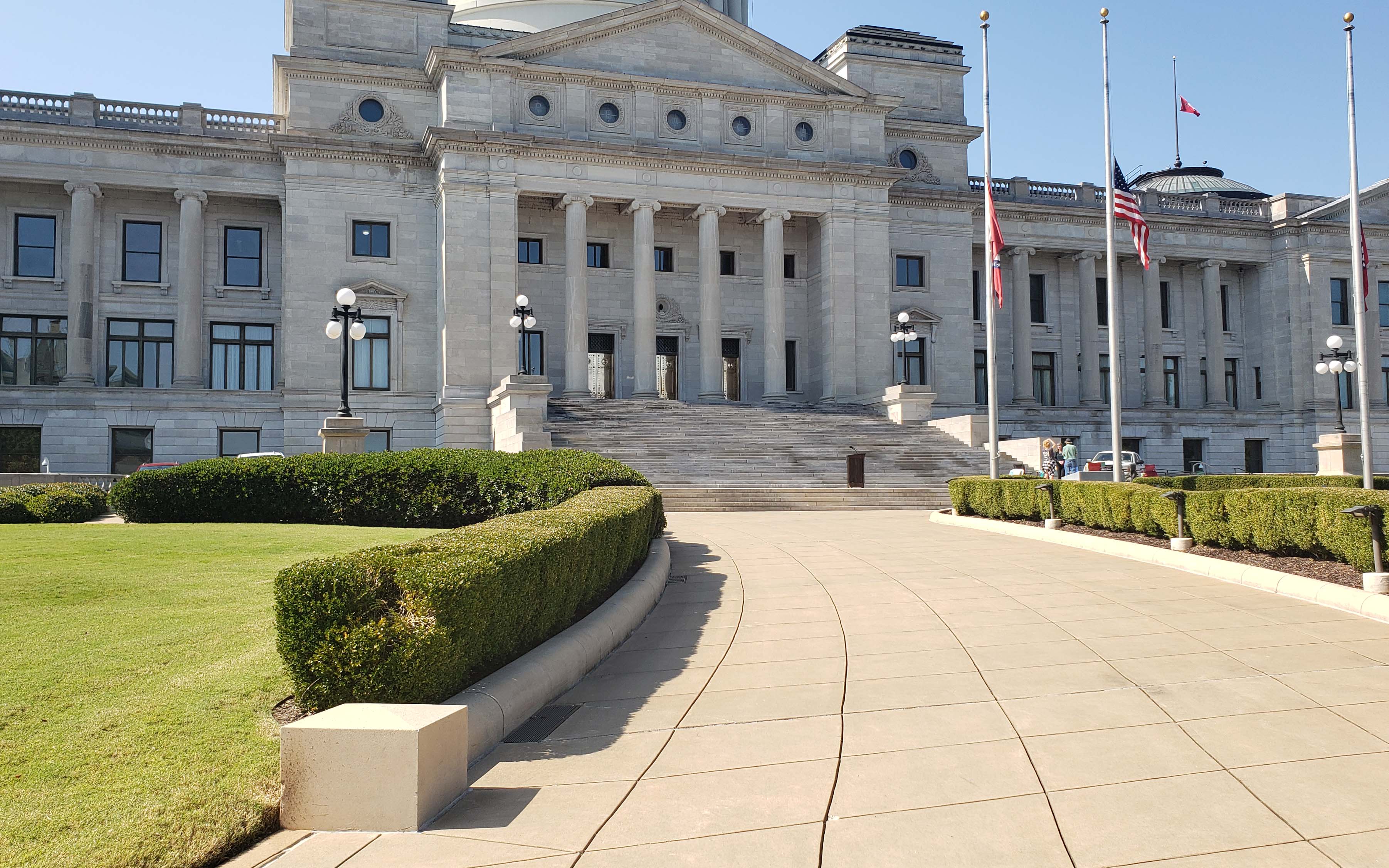City, counties and local governments facing budget shortfalls, cuts in services
October 12-18, 2020
Now that President Donald Trump has halted all talks a on a new $3 trillion COVID-19 emergency relief package, worries are mounting that state, local and municipal governments could soon be in dire straits due to ongoing pandemic related revenue losses and other budget woes.
The looming budget crisis led the National City of Leagues (NCL), whose members include the City of Little Rock and the Arkansas Municipal League, to lambast top Congressional leaders for failing to reach a compromise on two competing bills in the House and Senate.
“We are deeply disappointed to see that the President stopped further negotiations on a package that would have delivered critical aid to communities across the country. Abandoning our communities in this time of need will have a profound impact on the safety, health and economic security of all Americans,” said NLC President and CEO Clarence Anthony.
“America’s cities, towns and villages are reeling from the financial impact of the pandemic while continuing to expend significant resources to combat ongoing cases of COVID-19, recover from natural disasters and provide essentials services to their residents,” continued Anthony. “We can expect severe economic consequences from the failed negotiations, including more businesses closing and more public and private sector layoffs.”
Mark Hayes, executive director of the Arkansas Municipal League, said Arkansas cities and towns have seen sales taxes remain relatively flat or slightly above previous years collections. The Little Rock-based trade association is the official representative of Arkansas cities and towns before the state and federal governments.
“In Arkansas, the primary revenue stream for municipalities is sales tax. With the recent law change regarding online sales taxes it is my opinion those purchases are what have kept that revenue relatively stable,” said Hayes.
In the earlier Coronavirus Aid, Relief and Economic Security (CARES) Act signed by Trump in late March, Congress first approved a stimulus payment of at least $1200 to most American families making less than $75,000 annually. That legislation also included the popular Paycheck Protection Program to aid small business owners and included the original $600 per week unemployment extension for millions of jobless workers.
However, most of the $2.2 trillion in CARES Act funds were quickly depleted only weeks after Congress overwhelmingly approved the 880-page bill that was signed into law by President Donald Trump on March 27. By May, House Democrats had approved the so-called HEROES Act, a second 1800-page coronavirus relief bill that extends the $600 per week unemployment insurance supplement through Jan. 31, 2021 and then allows the supplement to continue through March 31, 2021 for those who have not exhausted their benefits.
On the other hand, a smaller $1 trillion proposal penned by U.S. Senate Majority Leader Mitch McConnell would cut unemployment benefits to $200 per week until states can implement a 70% wage replacement program.
However, lawmakers and White House negotiators, led by U.S. Treasury Secretary Steven Mnuchin, failed to reach an agreement in late July before Congress left the nation’s capital for the month-long August recess. Those same negotiators came back to the table in September after House Democrats released and approved an updated version of its coronavirus aid package, called Heroes Act 2.
Heroes and heals
The new version reduced the price tag from more than $3 trillion to $2.2 trillion but included more than $1 trillion to state and local governments. Of that total, $915 billion goes toward so-called flexible aid—which can be spent for any purpose, including to cover revenue losses. Under that plan, Arkansas would receive an allotment of nearly $6.8 billion for state and local governments, or $2,234 per capita.
According to the Washington, D.C.-based Tax Foundation, a conservative tax policy think tank, Arkansas’ slice of the HEROES funds would be split almost equally in state and local aid. Under the CARES Act, Arkansas was allocated $1.25 billion in COVID-19 relief fund out of a $150 billion fund meted out to all 50 states.
On the other hand, the smaller HEALS Act proposed by Senate leaders offers no new federal funds for state and local governments. In current talks, the GOP legislation would only allow state governments an opportunity to use part of the CARES Act in a more flexible manner, including shoring up budget holes and services caused by revenue shortfalls.
According to the CARES Act Steering Committee, a 15-person task force that includes state lawmakers and policymakers, Arkansas has handed out more than $400 million in coronavirus aid at the end of September, leaving more than $710 million unallocated. Hayes said the state of Arkansas was allotted $150 million to split between cities and towns.
“It’s important to remember, those requests are for reimbursement of monies spent specific to the pandemic,” said Hayes. “Additionally, and likely the largest portion of CARES Act reimbursement will be payroll for public safety personnel since the pandemic began.”
After the U.S. House approved the revised HEROES ACT mostly along party line vote of 214-207 on Oct. 1, Rep. French Hill, R-Little Rock, released a YouTube video and statement explaining his decision to vote against the Democratic legislation.
“When I started studying the details of this more than 2,000 page bill, I quickly discovered it was full of far-left progressive poison pill provisions, many of which have nothing to do with our response to the pandemic,” said Hill, who is locked in a tight election race against state Sen. Joyce Elliott, a Little Rock Democrat.
“Let me be clear: this legislation divides us more than it unites us. We’ve seen this from Nancy Pelosi’s leadership for the last two years,” continued Hill, who also voted against the earlier HEROES Act in May. “Rather than working together in divided government on legislation that will move our country forward, House Democrats once again have brought a bill to the floor that has zero chance of becoming law.”
Hill acknowledged that over the past seven months the coronavirus pandemic has been difficult for everyone, especially families and small business owners. The Republic lawmaker, a former banking executive, has also lauded the Trump administration’s PPP loan fund and other CARES Act programs as a key component to restarting small businesses and the economy.
In recent debate in the House over new coronavirus aid, Hill supported a Republican bill to extend the forgivable loan program despite criticism from House Democrats that the program was rife with fraud and abuse. For example, a recent report by the SBA inspectors general found banks and SBA-approved lenders likely approved hundreds of illegal loans to publicly traded companies and large corporations for high fees and compensation. At the same time, applications from mom-and-pop small businesses were ignored, the reported stated, including request for funds by smaller firms run by black owners, veterans, women, startups and poorly financed entrepreneurs.
Still, Hill said the Trump administration-based CARES Act provided financial help directly to Arkansas families and increased assistance for those forced out of their jobs. He said that COVID-19 relief bill included “good faith negotiations” that had a positive impact the nation’s response to the pandemic and the re-opening of the economy.
“Many central Arkansas small businesses were kept afloat by the Paycheck Protection Program, and the CARES Act funded Operation Warp Speed, which initiated some of the fastest therapeutic and vaccine development in human history,” said Hill. “But the CARES Act was only a short-term response to the pandemic, and, in my view, since August, we’ve needed a second round of targeted assistance -- assistance to help schools safely re-open, a second round of PPP for small businesses that are still struggling, and continued funding of our total fight against this pandemic.”
Hill added: “In the shadow of an upcoming election, the negotiations were not done in good faith, and a targeted, bipartisan solution in the spirit of the CARES Act has proved challenging.”
In the face of the pandemic, Little Rock city directors approved a proposal by Mayor Frank Scott Jr. to cut nearly $5 million from the city’s previous $276 million budget. That plan included furloughing some 200 part-time workers for 120 days and cutting some non-essential services across the state largest city. A month ago, the Little Rock Convention and Visitors Bureau also cut 39 positions due to the state and city’s declining tourism revenues.
State revenues above forecast, despite pandemic
Besides Little Rock, several other cities and local governments across the state are cutting budgets, jobs and services, according to recent reports. However, the state Department of Financial Administration reported on Oct. 2 that state tax revenue are well above year-over-year and the revised forecast after reopening the economy in April. State tax collections during the first quarter, which ended on Sept. 30, rose by 15% or $227 million to $1.84 billion, which is $158.8 million above forecast.
In fiscal 2020, which ended on June 30, 2020, Arkansas ended with $369.4 million in net available revenue more than expected. Fiscal year 2020 tax revenue ended down just 2.5% despite several months in early 2020 of economic disruption resulting from COVID-19 shutdowns.
Under Arkansas’ revised budget for fiscal 2021 state revenues have remained well above forecast amid the ongoing pandemic. Arkansas Revenue Stabilization Act mandates a balanced budget to provide appropriate funding levels for all the state’s major priorities under Gov. Asa Hutchinson’s updated $5.6 billion budget for fiscal year that began on July 1.
Nationally, however, most states that have closed out fiscal 2020 have experience revenue declines for the first time since the Great Recession, according to the National Association of State Budget Officers (NASBO). The large swing in tax collections led to a roughly 6% shortfall for states for fiscal 2020 in just a few months’ time after the pandemic began in March.
“This initial decline is only the beginning of what is projected to be a multi-year revenue challenge facing states with the potential to dampen the economic recovery,” said NASBO, noting that most states’ fiscal year ended on June 30. “As states continue to experience high unemployment rates and lower consumption levels, the trends seen in the fourth quarter of fiscal 2020 are expected to further depress state revenues in fiscal 2021 and beyond.”
According to NLC, state and local governments employ 13% of the nation’s workforce and 1.5 million of these workers were laid off or furloughed in April and May alone. To date, a third of cities already have begun to furlough or lay off essential municipal workers while nearly half are planning to institute hiring freezes. A quarter of counties have also had to reduce their workforces. Nationally, U.S. Bureau of Labor Statistics data shows that state and local governments lost more than 1 million jobs between July 2019 and July 2020.
PHOTO CAPTIONS: (Photo courtesy of Arkansas Dept. of Parks & Tourism)
State and local governments are calling on Congress for billions of dollars in direct federal funding to protect jobs, and prevent budget and service cuts.




